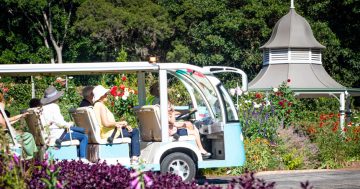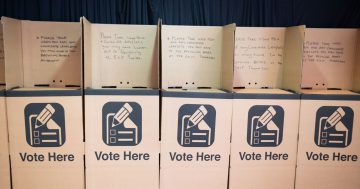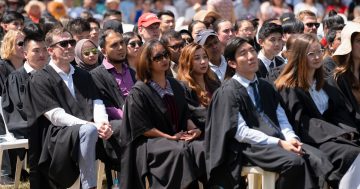
For many students, the extent of their civics education is a visit to Parliament House. Photo: Australian Parliament House.
NSW residents aged over 18 will head to the polling booths today to vote for their local government representatives.
Unfortunately, there will be some voters who have little understanding about the democratic process, let alone the difference between the three tiers of government we have in Australia.
I’m no expert when it comes to politics, but I do understand the need for government and I appreciate the fact that we live in a democracy, where we all get to have a say.
But we are failing our young people in not adequately teaching them about our democratic system of government, why voting is important, how the process works and how to find reliable, accurate information on which to base their choices.
If you were lucky, your school may have hosted a trip to the NSW Parliament, or even to the home of Australia’s government in Canberra.
But that may have been the extent of your education about civics/government/democracy. Sadly, not much has changed today.
A national civics and citizenship curriculum was developed by the Australian Curriculum, Assessment and Reporting Authority more than 10 years ago, but it’s up to the individual states to decide on how civics and citizenship is taught.
In NSW, civics and citizenship content is incorporated across all NSW syllabuses but there are no distinct civics or citizenship courses. A new Human Society and its Environment syllabus with an enhanced focus on civics is due to be released later this year, but won’t come into effect until 2027.
According to one high school teacher: “Our approach to civics and citizenship education, in NSW and across the country, is failing our young people and our community. I believe this failure, left unchecked, poses an existential threat to our democracy, institutions and way of life.”
The most recent National Assessment Program – Civics and Citizenship report, which is used to measure students’ knowledge of government, judiciary and democratic processes – found that just 55 per cent of Year 6 students achieved at or above the standard.
Even worse were the results for Year 10 students, given it’s the final year of schooling for some students – the rate was only 38 per cent, the lowest result on record.
When students receive a piecemeal education on civics and democracy they end up with a poor understanding of the system and process, leading to lower engagement.
And unfortunately for those who do want to improve their knowledge, they turn to social media and the hotbed of misinformation, rumours, gossip and outright lies.
The Federal Government’s Joint Standing Committee on Electoral Matters is holding an inquiry into civics education, engagement and participation in Australia to determine what can be done better to support democratic engagement and participation.
In a submission to the inquiry, Anne Twomey, a Professor of Constitutional Law at the University of Sydney Law School, said her concern about the poor level of civics education in schools and general civics understanding across the Australian community had only increased in recent years.
She is particularly concerned that people who don’t understand the system of government also don’t question the accuracy of information they see and hear on social media … “the quality and accuracy of the material fed to young people through social media is often questionable, and at worst intentionally false and manipulative.
“Civics education is so important because we need to give people a basic and fundamental understanding of how the system of government works so that they can easily detect and expose misinformation when they see it on the internet so that they’re less likely to be drawn into conspiracy theories,” she said.
“The stronger the level of knowledge and understanding you have at a base level when you’re young, the more likely you are to be effectively inoculated against all sorts of misinformation that is spread.”
Prof Twomey warns the situation is only going to get worse with the increasing use of artificial intelligence.
“We can no longer believe what we see and hear. Again, we need to equip Australians with the capacity to recognise when they are being fed content that is malicious and untrue, and the best way of doing that in the long term is to educate young people well.”
She suggests that as well as introducing dedicated civics subjects, educators should reassess when these subjects are taught.
“For example, elections are studied in Year 5, even though students really need to know how they work in Year 10, when they come closer to being able to vote. By that stage they have forgotten everything that they learnt about elections in Year 5, which was probably cursory anyway given the young age of the students.
“It would be better to focus on civics and citizenship as a full subject taught comprehensively in Years 9 and 10, so that the education is more sophisticated than at the primary level and is more likely to make a lasting impression.”
There have been growing calls to lower the voting age in Australia to 16, which is another discussion entirely. But before that move could even be considered, we must ensure all young people have a strong understanding of the system and, armed with that knowledge, be able to recognise that not everything on social media is factual.















